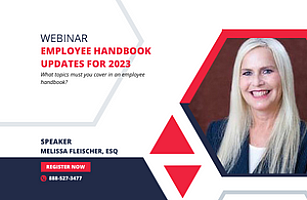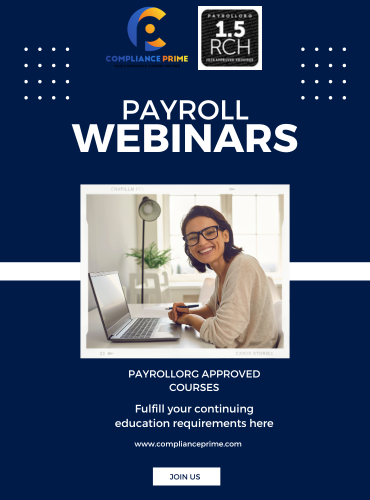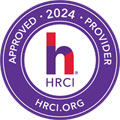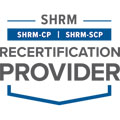
The life science industries, including pharmaceutical, medical device, biotechnology, biological, and tobacco and tobacco-related products continue to embrace new technology to improve delivery of quality products in compliance with FDA. In addition to some trends toward making use of cloud services, Software-as-a-Service (SaaS) solutions, and other technical innovations that have more recently begun to be used more heavily in life science companies, Artificial Intelligence (AI) is beginning to find a presence at these companies.
While life science companies tend to lag behind other markets in using these technologies, they are catching up and we are seeing much more activity related to AI use in software applications used to develop, produce, test, and manage life science products with quality and compliance. As the pace of technological innovation and evolution becomes more intense, there is a critical need for computer system validation, 21 CFR Part 11 (Electronic Records and Electronic Signatures) compliance, and data integrity assurance to continue in environments where AI is becoming prevalent.
FDA became alarmed by the lack of compliance to meet data integrity and Part 11 requirements during the last decade. Out of compliance citations during this period, including Form 483s and Warning Letters have skyrocketed for these key areas of compliance. But why?
Based on discussions with clients and stakeholders at conferences and meetings, it has become more and more obvious that most of the performers in industry are under management pressure to do more work with fewer resources and in less time. This continues to lead performers to seek faster and easier ways to get the work done, and opens the door to more conversation around the use of AI in software development, testing, and support.
It is time to embark on the AI revolution and continue to deliver quality products with compliance to meet the needs of the consumers by putting newer, more innovative, safer, and more effective products in their hands, all of which are key focus areas for FDA.
Why Should You Attend?
Providing safe and effective medical devices, drugs, and other FDA-regulated products is in the best interests of all those involved in the development, manufacturing, testing, and distribution of these products. One of the largest current threats to these devices working safely and effectively is cyberattacks that can wreak havoc on code and device functionality. Preventing these attacks by identifying sources of threats and rooting them out before they can take effect is of the utmost concern. And with newer technologies such as AI in the mix, it means more challenges for companies that develop, test, and support software applications in the life science industries.
In this webinar, you will learn just how AI can increase efficiency and effectiveness of software development life cycle (SDLC) activities, enabling the delivery and support of computer solutions that will drive industry over the coming years.
Cyberattacks threaten medical devices and how industry is currently responding to them. We will discuss the many ways of preventing and mitigating the cybersecurity risk, and about the industry best practices that can help your company do the same.
This webinar is intended for those working in the FDA-regulated industries, including pharmaceutical, medical device, biological, animal health and tobacco. Functions that are applicable include research and development, manufacturing, Quality Control, distribution, clinical testing and management, adverse events management and post-marketing surveillance.
You should attend this webinar if you are responsible for planning, executing or managing the development or implementation of any system governed by FDA medical device or software regulations, or if you are maintaining or supporting such a system.
Areas Covered
- How FDA will adapt its review process for AI-enabled medical devices that have the ability to evolve rapidly in response to new data, sometimes in ways difficult to foresee.
- An overview of current and potential uses of AI in health care and the challenges posed.
- How and under what circumstances products using AI are regulated by FDA.
- Understand how updates to software using AI and Machine Learning (ML) capability should be handled.
- We will also review traditional Computer System Validation (CSV) and Computer Software Assurance (CSA), which was issued as a draft guidance from FDA in September 2022.
- We will cover all aspects of maintaining the system in a validated state once it’s in production.
- FDA’s plans to ensure benefits of products involving AI technology outweigh the risks.
- FDA, the US Congress, technology developers, and health care industry companies must work together to determine and share best practices for using and working with AI.
- Q&A
Who Should Attend?
- Information Technology (IT) Analysts
- IT Developers
- IT Support Staff
- IT Security Staff
- QC/QA Managers and Analysts
- Production Managers and Supervisors
- Supply Chain Managers and Supervisors
- Clinical Data Managers and Scientists
- Compliance Managers and Auditors
- Lab Managers and Analysts
- Computer System Validation Specialists
- GMP, GLP, GCP Training Specialists
- Business Stakeholders using Computer Systems regulated by FDA
- Regulatory Affairs Personnel
- Consultants in the Life Sciences and Tobacco Industries
- Interns working at the companies listed above
- College students attending schools and studying computer system validation, regulatory affairs/matters (related to FDA) or any other discipline that involves adherence to FDA regulatory requirements
Carolyn Troiano
Carolyn Troiano has more than 40 years of experience in the tobacco, pharmaceutical, medical device and other FDA-regulated industries. She has worked directly, or on a consulting basis, for many of the larger pharmaceutical and tobacco companies in the US and Europe, developing and executing compliance strategies and programs. Carolyn participated in the FDA/Industry team that drafted 21 CFR Part 11, the FDA Guidance for Electronic Records and Electronic Signatures (ER/ES). She is active in seeking ways to streamline the validation process and do what she terms “Common Sense Validation,” removing tasks that do not add value, but carefully taking a risk-based approach and using critical thinking to drive plans and activities.
Why You Should Subscribe?

Unlimited Live and On-Demand Courses
Watch all live or recorded webinars (up to 120 minutes long). Get instant access to a library of more than 500 high quality courses presented by best-in-class presenters.

CEUs: APA, CPE, SHRM and HRCI Credits
Fulfil your recertification requirements by earning CEUs from APA, CPE, SHRM and HRCI.

Free Access to Course Materials
Each program comes with Additional Course Materials, which you can download and read anytime.

Additional Discounts
Get flat 20% discount on Premium Product Category like, Long Hour Webinars.
Call Now At
888-527-3477
Email Us At
Similar Events

Apr 03rd 2024 @ 01:00 PM ET
Excel – Reporting Simplified – Learn Pivot Tables from Scratch

Sep 20th 2018 @ 01:00 PM ET
If it Isn't Written, it Didn't Happen! How Can Employers Create Litigation Proof Decisions!

Jan 25th 2023 @ 01:00 PM ET
Employee Handbook Updates for 2023

Apr 08th 2020 @ 01:00 PM ET












